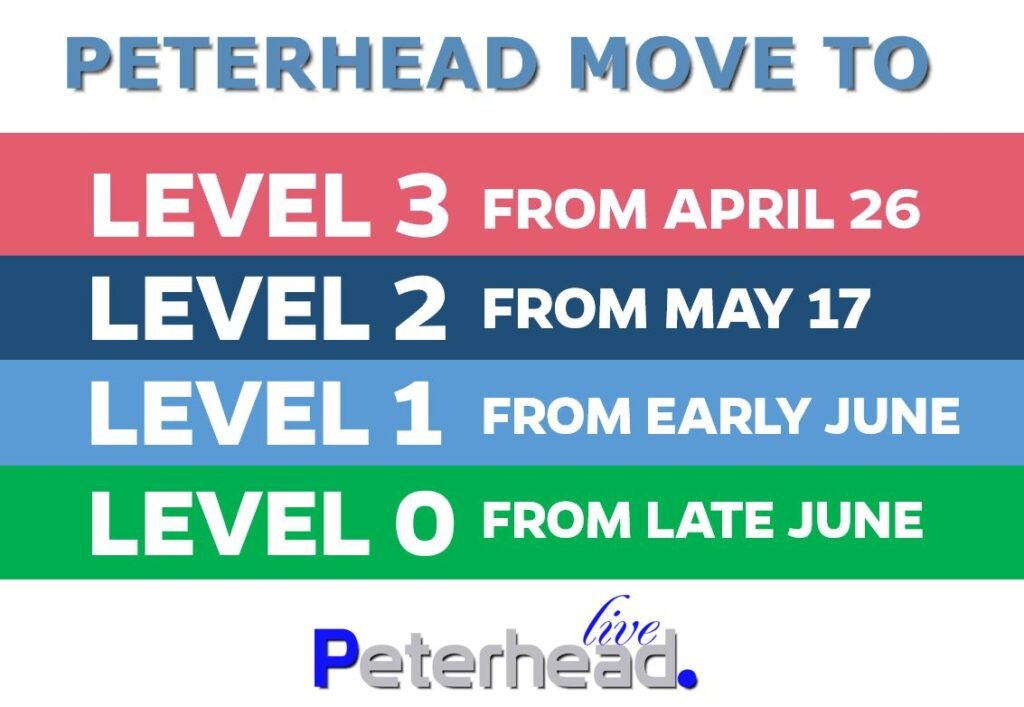Scotland lockdown updates: Peterhead will move to level 3 Covid-19 restrictions on April 26
Scotland lockdown updates Nicola Sturgeon also outlined the potential dates for Scotland’s start From 16 April.

From 16 April – Travel restrictions lifted and more people can meet up
The latest announcement on Scotland’s journey out of lockdown means people will be allowed to meet in groups of up to six adults from six households in outdoor settings from Friday.
In addition, people will also be permitted to travel across Scotland and Aberdeenshire as long as they do not stay overnight.
These changes had not been due to come into force until 26 April but the Scottish government said they were being made earlier than originally planned in an effort to boost people’s mental health and wellbeing.
Scotland lockdown updates: 19 April – All schools reopen
Virtually all pupils will return to school full time after the Easter holidays.
The only exception is for those in the shielding category, who must stay at home until 26 April.
Secondary school pupils will no longer have to follow strict two metre physical distancing rules when they return, but they must wear face coverings at all times.
All primary school pupils had returned full-time by mid March, but before the Easter break secondary pupils were taught using blended learning – a mix of home and classroom study.

Scotland lockdown updates: End of April – Shops, gyms and beer gardens
All remaining shops and close contact services like nail salons are due to reopen on 26 April.
Pubs, bars, cafés, restaurants and bars will be able to serve people outdoors – in groups of up to six from six households – until 22:00 from that date. Alcohol will be permitted, and there will be no requirement for food to be served.
Takeaways will be able to resume normal service, with physical distancing and face masks worn in premises
There will also be a partial resumption of indoor hospitality – food and non-alcoholic drinks can be served until 20:00 for groups of up to four people from no more than two households. Contact details will still need to be collected.
Indoor gyms and swimming pools will be allowed to open for individual exercise, driving lessons and tests will take place, and non-essential work in people’s homes can resume.
Scotland will return to a levels system, with the entire country initially moving to a modified version of the current level three restrictions.
Island communities – which have been in level three for some time – will stay in the same level as the mainland at first to allow people to travel between areas.
Non-essential journeys to other parts of the UK and the wider common travel area should also be permitted from 26 April.
Tourist accommodation, museums, galleries, libraries can also open from this date.
The number of people allowed to attend a wedding or funeral rises to 50.
People on the shielding list will be able to return to work, college, school or nursery.
Scotland lockdown updates: Middle of the May – Cinemas, bingo and meeting up indoors
Three weeks later, on 17 May it is hoped most, if not all, council areas will be able to move from level three to level two, allowing much more normality.
People should at last be allowed to meet up inside others’ homes (although this could happen sooner) – initially in groups of up to four people from no more than two households.
Indoor hospitality is expected to resume with alcohol being served and pubs or restaurants allowed to stay open until 22:30 with two-hour time-limited booking slots.
Cinemas, bingo halls and amusement arcades can now reopen.
Outdoor and indoor events such as concerts can also restart, but capacity may be limited initially.
Restrictions on meeting up outdoors will ease further. Adult outdoor contact sports and indoor group exercises can resume.
More students will be back at university or college but with blended learning continuing. Face-to-face support services such as counselling can take place.
Scotland lockdown updates: Early June – Almost back to normal
The hope is that from 1 June, all of Scotland can move to level one – and by the end of the month to level zero, the lowest category of the five tier system.
In early June it is hoped up to six people from three households can socialise indoors, at home or in a public place.
Outside up to eight people from three households can meet while for 12 to 17-year-olds the limit on the number of households rises to eight.
Hospitality will be able to stay open until 23:00 and the number of constraints on events such as concerts will be relaxed.
Indoor non-contact sport will resume. Casinos, funfairs and soft play can re-open.
The risk of importing new variants of Covid means a big question mark hangs over non-essential international travel, for instance for holidays.
It will almost certainly not be allowed before mid-May, and the government warns it may not resume for some time after that.
When it is allowed, pre-departure and post-arrival testing will remain a requirement.
From the end of June there will be a phased return of some office staff and increased numbers at places of worship or other events such as weddings.
